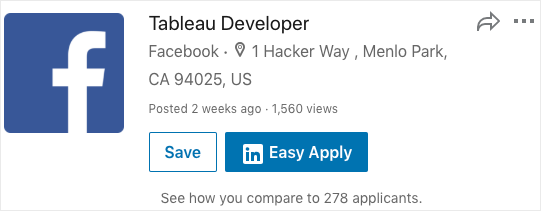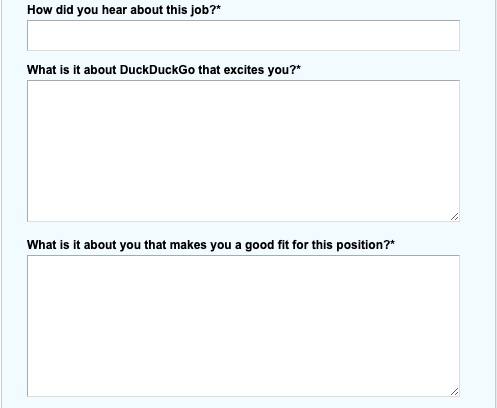Tips for Getting a Developer Interview¶
Over the last month, the Read the Docs team conducted 30-40 customer development interviews with hiring managers and recruiters at companies ranging from 5-person companies to the biggest names in tech. We wanted to learn more about hiring processes at various companies with the ultimate goal of building a product to help companies find developers.
Last time, we covered some tips for hiring managers based on what companies told us they were doing. This time, we put together tips for candidates looking for their next job based on insights we heard from hiring managers.
Rather than covering how to crack developer interviews or how to gain the necessary technical skills, these tips will focus on getting your foot in the door. Specifically:
Making your application stand out
Improving your application response rate
Getting to the interview process
When applying, go deep not wide¶
“I don’t want candidates who drive by job sites and pepper every job they find”
As a candidate, there is a temptation to play the numbers game and apply to as many jobs as possible. Many jobs sites make it easy to apply to many jobs quickly and this gives you that feeling that your job search is progressing.
Based on what hiring managers told us, playing the numbers game isn’t the best approach. While it is a bit of a job-seekers market, especially for more senior talent, companies are looking people who want to work for their company and who believe in their mission. Hiring managers told us they want applicants who “think about the company, then check for opportunities”.

That’s almost 300 applications in 2 weeks on just one of the job sites where this is posted.¶
Spend a little more time on your application¶
While it takes longer to apply to a job post that requires a cover letter or requires answers to a few questions, those are great ways to have your application stand out relative to other applicants. You don’t want your resume to get lost in a stack of hundreds.
As we mentioned last time, quite a few hiring managers we talked to started requiring a cover letter or even just a couple questions that are unique to the company in order to make their job filtering candidates easier and get candidates who want to work there not those who just want a job.
All the companies we talked to said when they post a job they got tons of applicants, but that high quality, qualified applicants were still in short supply. When 200 people apply to a job but only 20 are willing to do a cover letter, a hiring manager can spend a lot more time per candidate with the smaller pool. One hiring manager told us explicitly “fewer resumes is better because there’s less noise”.
While I know I said getting a developer job isn’t a numbers game, this doesn’t strictly mean you can use these techniques to apply to 2-3 jobs and you’ll get hired. Sometimes by the time you apply, somebody is already in the final stages of getting hired. The position may not really be open anymore. Don’t get discouraged in your job search. Finding the right match can take time.

Here’s some of the questions from the DuckDuckGo application process. This is your place to stand out! DuckDuckGo was not one of the companies we interviewed.¶
Make yourself a referral: use your network¶
Hiring managers universally told us their top recruiting channel is referrals from existing employees. As a candidate, use this knowledge to your advantage and make yourself into a referral hire.
Did you see an acquaintance on social media post about job openings at their company?
Does a friend or a friend of friend work at the company?
Do you have a first connection (or a very good 2nd connection) on LinkedIn who works there?
In all of these cases, you should contact that person before applying. Even if the person you know isn’t on the hiring team, your contact might be able to put you in touch with the right person.
“Most [senior] people go through their network”
For a mid-level to senior candidate with 7+ years of experience, this is even more important based on our interviews. At that stage of your career, hiring managers we talked to expect a high quality candidate to do due diligence on the company and team to make sure it’s a mutual fit.
Regardless of the exact route you take here, getting in touch with the right people to learn more about the team, the tech stack, and the company makes it clear that you’re very interested. You’re far more likely to get a response, move on to the interview process, and ultimately get hired.
Establishing contact with companies¶
Turning yourself into a referral is easier for a senior candidate. But what if this is your first or second job or don’t know anybody at the company?
After referral candidates, the next best hiring channel in our interviews was local meetups and engaging the local community. Both startups and established companies – especially when they are actively hiring – use meetups to find talent. If you’re able to meet the hiring manager in person or establish some sort of connection, in my experience, this raises your chances significantly.
In our interviews, another channel that mid-size and larger companies we talked to used to recruit was to rely on their presense at conferences. For many companies, recruiting was the primary motivator to sponsor a conference and have a booth. As a candidate, talking to the engineers at the booth and showing interest can ensure that your application doesn’t get lost among all the applicants they get.
At a smaller company, it’s frequently possible to figure out exactly who the hiring manager is from some combination of the website, hiring posts, and LinkedIn. This is a great way to make a valuable connection and make sure the role is a good fit. Contacting the hiring manager cold requires a bit of finesse so make sure to be respectful.
Places like the monthly HackerNews Who’s Hiring thread are fantastic because they allow direct interaction with the hiring manager and many companies list a person’s direct email to inquire about a position, learn more directly from the source, and show you’re interested.

Here’s some of the phrases we heard from hiring managers in interviews.¶
Conclusion¶
By spending a bit more time on your application, establishing contact with the company, and asking good questions about the work and team, you are showing your intent and interest in the company.
You want to make sure the hiring manager or recruiter understands that you’re a serious candidate and you want to work there on their team. Using these methods will improve your response rate and help you get the interview. By doing a one-click apply on a job site, this is completely lost.
Thanks¶
Again, I’d like to thank all the hiring managers who took the time to talk to us.